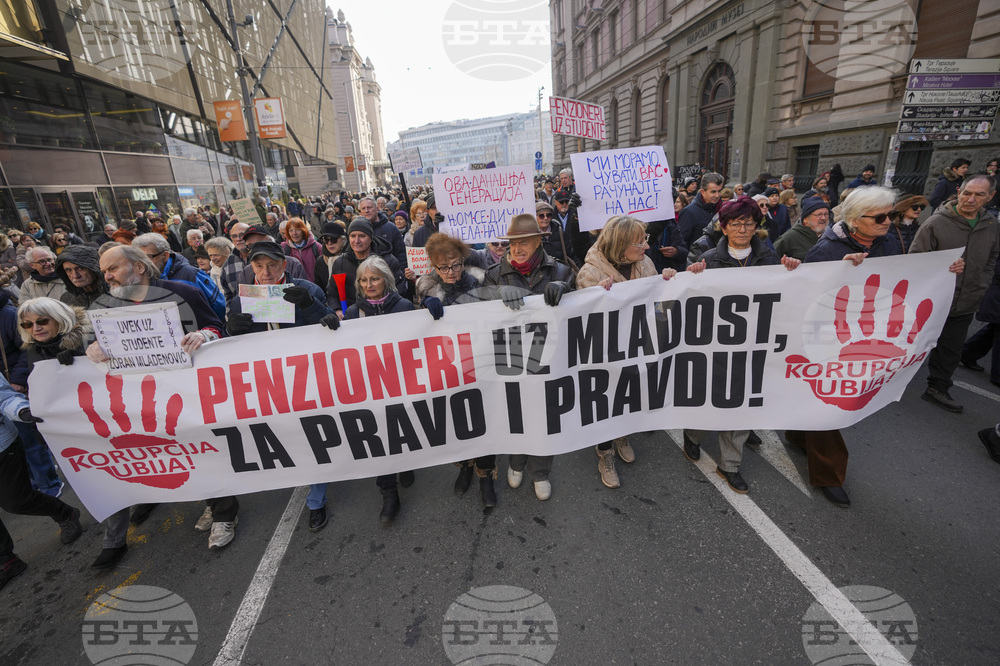site.btaEU Foreign Policy Chief Kallas Backs Serbian Protests, Urges Rule of Law


This article is based on content provided by agencies participating in the European Newsroom (ENR), including the Bulgarian News Agency.
European Union High Representative for Foreign Affairs and Security Policy Kaja Kallas said on Wednesday that Serbian citizens have the right to peacefully protest for justice, good governance, the rule of law, and the eradication of corruption. Speaking in an interview with ENR, she addressed the ongoing student-led demonstrations in Serbia.
Protests have been ongoing for over three months, sparked by the collapse of a canopy at Novi Sad railway station shortly after its inauguration in November, which left 15 people dead. Students are demanding accountability from the authorities.
The political opposition and student movement attribute the disaster to corruption, alleging irregularities in the awarding and execution of the construction work.
Several attacks on protesters have been reported, including an incident in which a car was driven into a crowd of students. Demonstrators suspect individuals linked to the ruling party are responsible.
Serbia applied for EU membership in 2008 and was granted candidate status in 2010. Membership negotiations began in 2012. "Of course, the future of Serbia is for Serbian people to decide," Kallas said.
New Momentum in Serbia-Kosovo Dialogue
Kallas also addressed the dialogue between Belgrade and Pristina, saying that she will meet with newly appointed EU Special Representative for the dialogue, Danish diplomat Peter Sørensen, in March, to determine the next steps.
She stressed that the Western Balkans are part of Europe, even though they are not in the EU, and that regional stability is crucial for the bloc. She added that reducing tensions is in the EU’s interest and that she will personally engage in the process.
"It is clear that the normalization of relations is needed for both countries. If they think they can move on the European track without normalizing their relationship, then I don’t see how that is possible," Kallas said.
The Western Balkans are the EU’s "close neighbourhood," she said, adding: "It is in our interest that tensions are reduced" and that "they are with us."
Kosovo, a former Serbian province, declared independence in 2008. Serbia does not recognize its statehood. Kosovo applied for EU membership in 2022, but the process remains stalled due to a lack of consensus among the 27 member states, as Cyprus, Greece, Romania, Slovakia, and Spain do not recognize its independence.
Kosovo held elections last Sunday. Kallas urged people to be patient and observe how the next government is established and how progress unfolds. She said she was looking forward to the formation of a new government and to supporting Kosovo’s rapprochement with the EU.
/NZ/
news.modal.header
news.modal.text